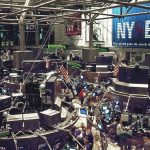Brad Merchant is Director of Impact Investments at Palladium, discusses the current economic climate in Africa and the secrets to investing in the region.
When you imagine a finance professional at work in pursuit of the next impact investment opportunity, you may not envisage hours spent on dusty, back roads in rural West Africa. But that’s what experience has taught me it takes to find the right partners.
Over the past five years we’ve seen exponential growth in impact investing. According to the Global Sustainable Investment Alliance, combined funds currently stand at a total of $23 trillion of assets under management.
The need for thoughtful insight into the world of impact investing could not be greater or more pressing. Presidents and protestors alike are asking fundamental questions about the role of business and the purpose of wealth creation.
As a global business and financial community, we need understandable metrics which combine social justice and sustainable value.
Credit rating agencies are hard at work to evaluate relevance criteria, while at the same time the clamour to deliver on the promise of the United Nations’ Sustainable Development Goals (SDGs) grows increasingly louder.
I’ve spent the past four years evaluating Palladium’s direct investments in sub-Saharan Africa, which has given me direct experience of how to apply a commercial approach to international development.
My team and I have devoted months at a time and travelled thousands of miles in pursuit of our goals. I believe that persistence is paying off as we see growing signs of a “Network Effect” from the impact investing decisions we’ve taken in the past.
Our trips into the relevant rural regions require drives of up to five or six hours down remote country roads to meet with potential partners, and we typically spend at least two or three days with them to gauge their honesty and passion.
It’s by having tough, face-to-face conversations with entrepreneurs that we understand how our business relationship will work and whether they’re the right fit. It’s all about how two people can help each other. You only know that by speaking to them in person.
SEE ALSO:
The selection criteria is simple. We begin in a region or sector where we have a presence and an understanding of the market.
Our focus is on small and medium enterprises in our markets that are looking for external financing to scale their operations. This is an important part of the developing world’s economy which is frequently underserved and often overlooked.
We target what is known as the “missing middle.” We chose it deliberately in our determination to help vulnerable communities.
We’re a tentpole investor providing both capital and expertise. We want a long-term relationship which allows the business to scale.
Typically, we seek to make investments in the region of $500,000 to $2,000,000 in off-grid or sustainable energy and agricultural sectors. These are areas receiving relatively little attention from capital markets in general.
Recent research into the concept of “ESG in need” has provided evidence that this approach to impact investing is a means to delivering better economic returns and social impact. It involves a focus on cash flow, productivity and companies with a high cost of capital.
We look for businesses which are up and running and successful, but the situation is often complex and the picture incomplete.
That’s why we’re determined to make it work in West Africa, including Nigeria. Nigeria is an economy in need where social impact can be maximised. Ethnic conflicts and tensions mean this is not a country where you can just rent a car and go check out the market. We have our experts on the ground who are embedded in local economies and communities.
Nigeria is Africa’s most populous country. There are 87 million Nigerians who live in extreme poverty and, according to the World Bank, the unemployment rate is 23%.
The focus therefore needs to on rural areas and female empowerment, where the existing investor support network is once again patchy and weak.
In Northern Ghana, Palladium has financed the accelerated growth of the majority female-owned Naasakle – a shea butter company. The business supports thousands of local female workers by selling beauty products around the globe.
Growth is driven by an increase in in the demand for shea butter, which is a 100% natural product originating from the nuts of the shea tree and is used in a wide range of skincare products.
Collaboration and the importance of inspiring others is critical In Nigeria, it’s seen the country’s Diaspora community become increasingly interested and involved.
The funding gap created by a general lack of appetite for investment risk is hard to close. But there is a massive opportunity.
Making a difference isn’t easy, but the dividends are many, if you can focus your efforts where the social value is the greatest.
For more information on business topics in Africa, please take a look at the latest edition of Business Chief Africa.
Source: impact investing




